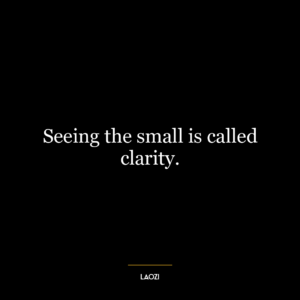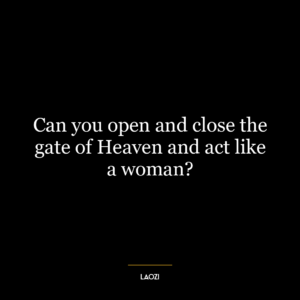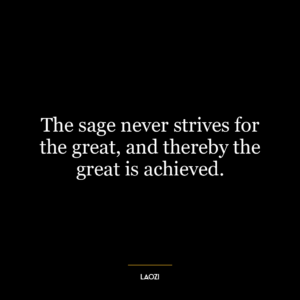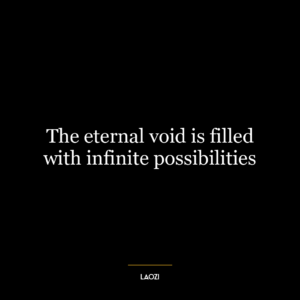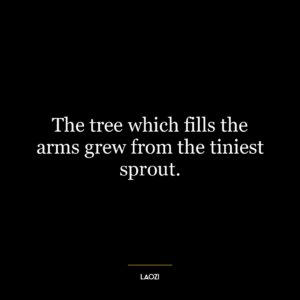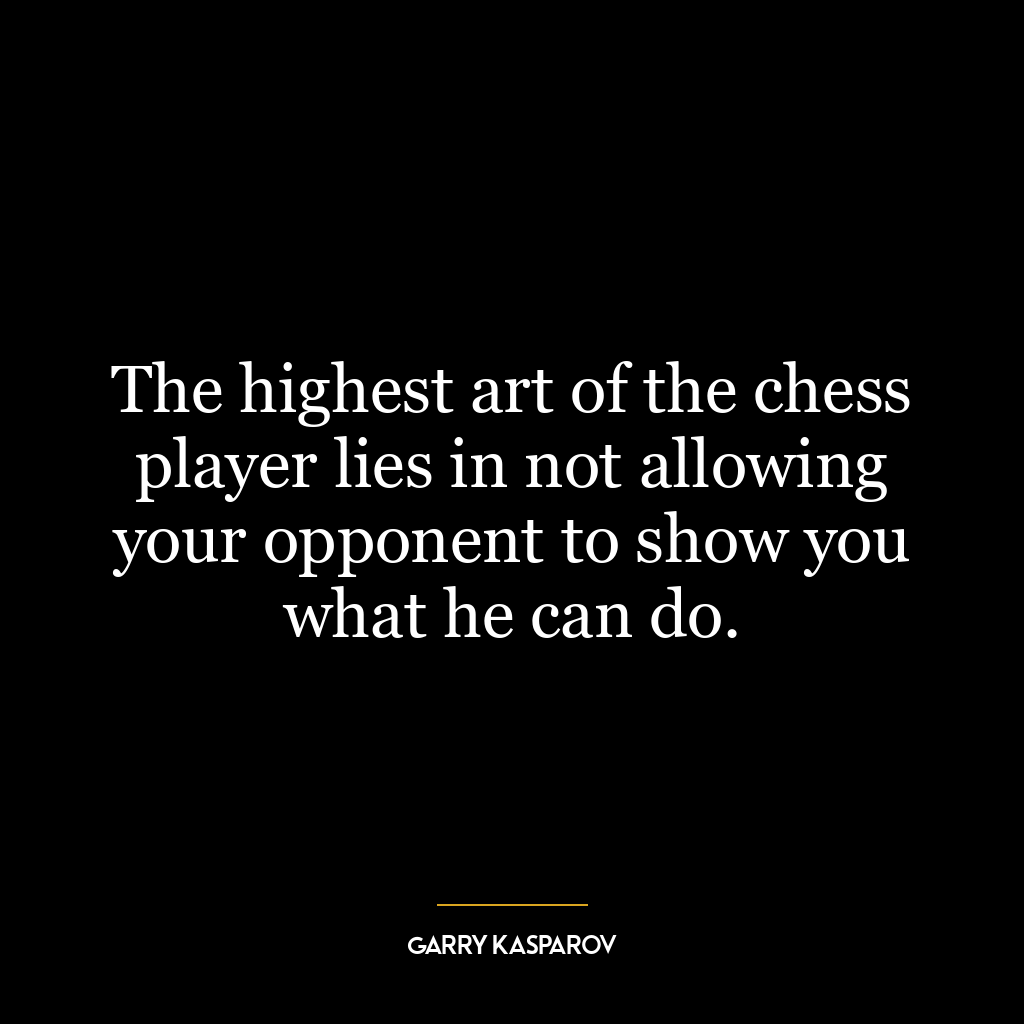Stop trying to control. Let go of fixed plans and concepts, and the world will govern itself.
This quote suggests that the more we try to control things, the less control we actually have. It encourages us to let go of preconceived notions and rigid plans, and instead, allow things to naturally unfold. The idea is that the world has its own rhythm and order, and it will manage itself if we don’t interfere excessively.
Laozi’s words reflect the philosophy of Taoism, which emphasizes living in harmony with the Tao, often translated as ‘the way’ or ‘the path’. This path is not a fixed route, but rather a natural flow of events that we should align ourselves with. By letting go of our desire to control and manipulate, we can better adapt to life’s changes and uncertainties.
In the context of personal development, this quote suggests that personal growth occurs when we stop trying to force things to happen a certain way. Instead of clinging to specific outcomes, we should focus on the process and be open to different possibilities. This doesn’t mean that we shouldn’t have goals or plans, but rather that we should not be overly attached to them.
In today’s fast-paced, high-pressure world, this idea is particularly relevant. We often feel the need to control everything, from our careers to our personal lives, which can lead to stress and dissatisfaction. By letting go of this need for control, we can achieve a sense of peace and contentment. We can become more flexible and adaptable, better equipped to deal with life’s challenges.
Moreover, in a global context, this idea could be applied to issues such as climate change and political conflicts. Rather than imposing rigid solutions, we should be open to diverse perspectives and approaches, recognizing that the world is a complex, interconnected system that cannot be governed by fixed plans or concepts.
In essence, Laozi’s quote is a call for flexibility, adaptability, and openness. It reminds us that life is unpredictable and that we should embrace this unpredictability rather than trying to control it.




